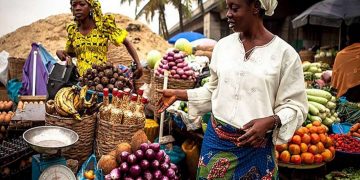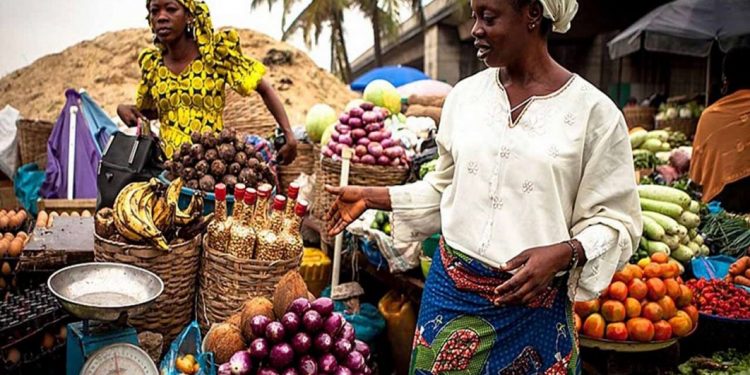By John Ikani
The consumer price index (CPI), which measures the rate of change in prices of goods and services, surged to 20.77 percent in September 2022, up from 20.52 percent in the previous month.
The figure represents the highest rate recorded since September 2005.
The National Bureau of Statistics, NBS disclosed this in its monthly report released on Monday.
The bureau said the rate is 4.14 percent points higher compared to 16.63 percent recorded in September 2021, indicating an increase (year-on-year) in September 2022.
According to the NBS, “this indicates that in the month of September 2022 the general price level was 4.14 per cent higher relative to September 2021.
“On a month-on-month basis, the Headline inflation rate in September 2022 was 1.36 per cent, this was 0.41 per cent lower than the 1.77 per cent rate recorded in August 2022.
“This means that in the month of September 2022, the headline inflation rate, month-on-month basis declined by 0.41 per cent, relative to August 2022.
“The percentage change in the average CPI for the twelve month period ending September 2022 over the average of the CPI for the previous twelve month period was 17.43 percent, showing a 0.60 percent increase compared to 16.83 percent recorded in September 2021.
“On a year-on-year basis, in the month of September 2022, the urban inflation rate was 21.25 percent, which was 4.06 percent higher compared to the 17.19 percent recorded in September 2021.
“On a month-on-month basis, the urban inflation rate was 1.46 percent in September 2022, this was a 0.34 percent decline compared to August 2022 (1.79 percent).
“The corresponding twelve-month average for the urban inflation rate was 17.94 percent in September 2022. This was 0.53 percent higher compared to the 17.41 percent reported in September 2021.”
NBS explained that the accelerating inflation rate was likely caused by soaring food prices, disruption in the supply of food products, rise in import cost due to the persistent currency depreciation and general increase in the cost of production.
The report also said food inflation rose to 23.34 percent in the review month, an uptick compared to the 23.12 percent recorded in the preceding month.
The rise in the food index, NBS said, was caused by increases in prices of bread and cereals, food products, potatoes, yam and other tuber, oil and fat.
What you should know
The continuous depreciation of the naira against the US dollar has significantly impacted the rising rate of inflation coupled with sustained supply chain disruptions and the global energy crisis. Meanwhile, it is expected that the twin monetary approach of the CBN will begin to have an impact in the short term.
The Monetary Policy Committee of the Central Bank of Nigeria during the last MPC meeting in September raised the benchmark interest rate by 150 basis points from 14% to 15.5%. The hike marked the highest level in 20 years and the decision was made in a bid to curb the rising cost of goods and services in the country.
Also, the CBN increased the cash reserve requirement (CRR) to a minimum of 32.5%, to mop up excess liquidity in the economy while discouraging currency speculators. However, the exchange rate has been on a downtrend so far this year, falling to as low as N740 to a dollar at the black market and N440/$1 at the official Investors and Exporters window.



































